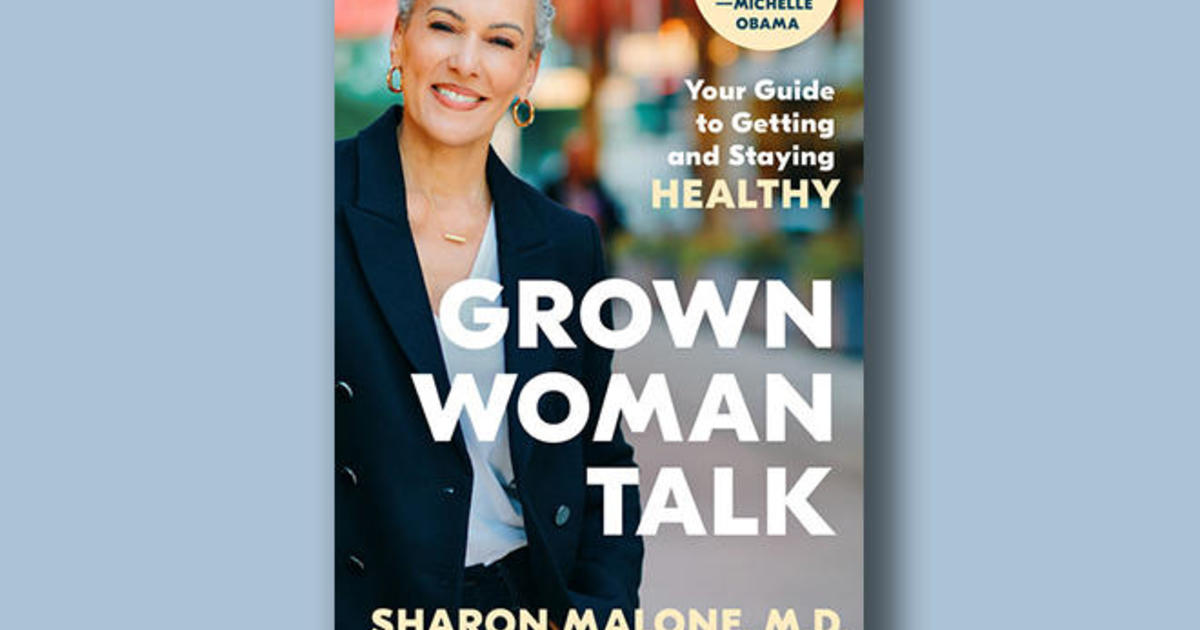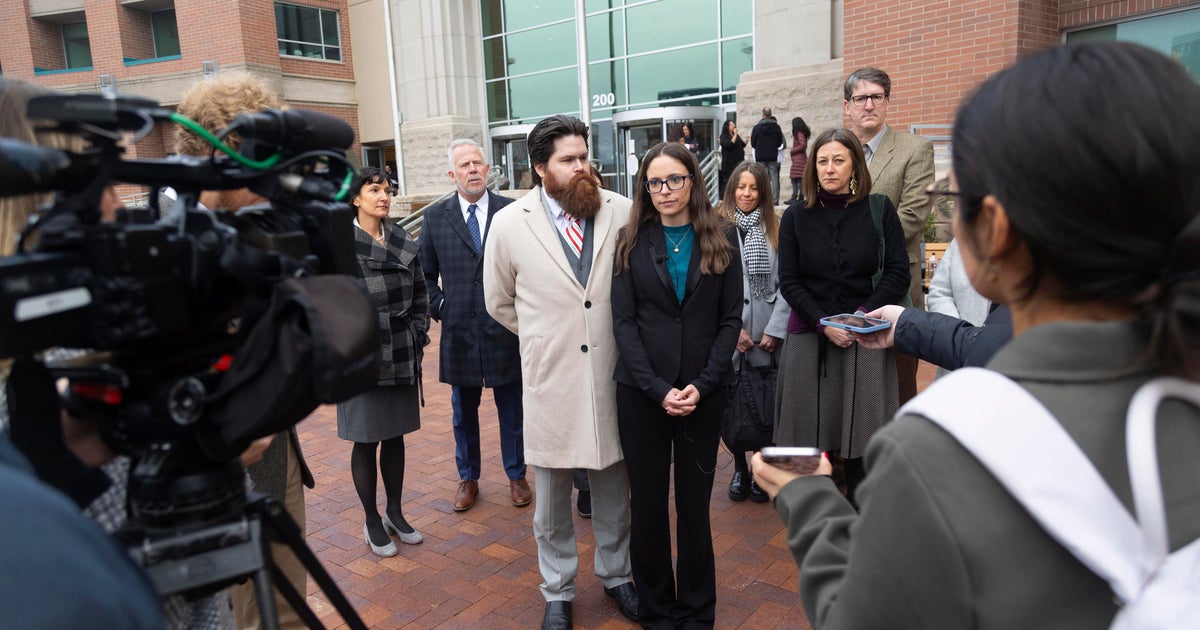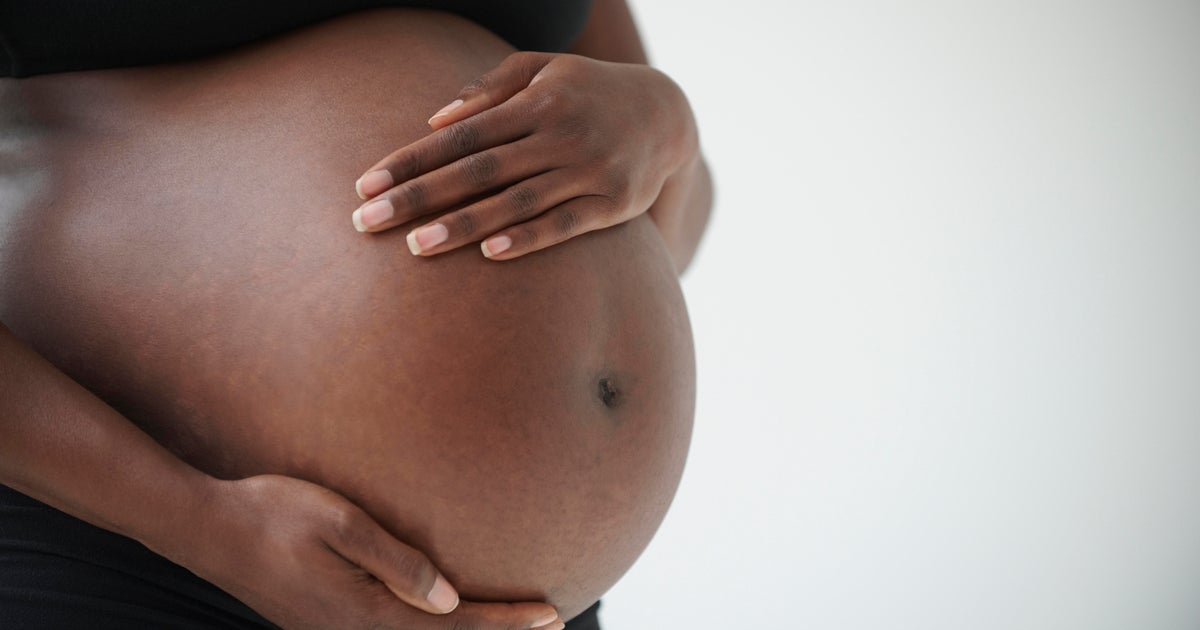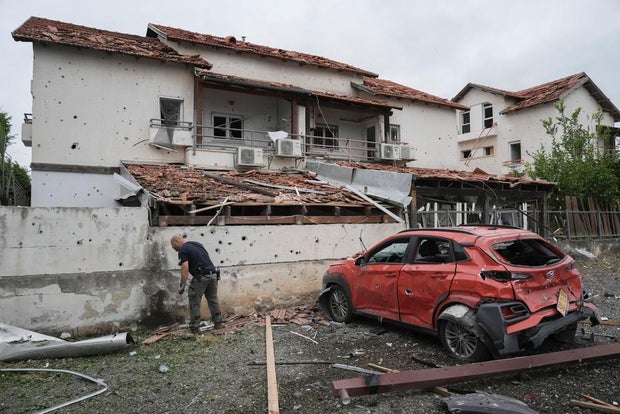CBS News
Book excerpt: “Grown Woman Talk” about menopause

Crown
We may receive an affiliate commission from anything you buy from this article.
In her new book, “Grown Woman Talk: Your Guide to Getting and Staying Healthy” (published April 9 by Crown), Dr. Sharon Malone, an OB/GYN and certified menopause practitioner, addresses issues facing women who may feel marginalized about their health questions as they get older.
Among the important topics covered is perimenopause/menopause, a stage in life that has long been stigmatized but which, Dr. Malone says, has an upside.
Read an excerpt below, and don’t miss Tracy Smith’s interview with Sharon Malone on “CBS News Sunday Morning” April 7!
“Grown Woman Talk” by Sharon Malone, M.D.
Prefer to listen? Audible has a 30-day free trial available right now.
Menopause and Beyond
So, it’s been twelve months since your last period. You are now one of the estimated 2 million women in the United States who enter menopause each year. Congratulations! You’ve officially crossed over.
The average age for becoming menopausal in the United States is about 51. But who’s average? About 5 percent of women experience what is considered an early menopause, defined as having had your last period between the ages of 40 and 45. Whether early menopause occurs naturally or because of surgery, medication, or certain medical conditions, it puts you at higher risk for the long-term consequences of menopause. Fortunately, only about 1 percent of women go through menopause before the age of 40. But the symptoms that we associate with perimenopause/menopause can show up as early as ten years before the final menstrual period. This means that about 6 percent of women can become symptomatic and experience suboptimal fertility in their 30s! Thus, knowing the signs and symptoms as well as your family history are extremely important in not only making an accurate diagnosis, but in effective family planning.
There are currently over 55 million menopausal women in the United States alone. The latest CDC provisional life expectancy statistics (2021) report that the life expectancy for white women is 79.2 years; for Black women, that figure is 74.8; for Hispanic women, it is 81; and the ethnic groups with the highest and the lowest life expectancies are Asians at 85.6 and Native American/Alaskans at 69.2. Of note, all of these numbers have decreased by almost two years since COVID. Let’s hope and pray that these numbers will soon return to pre-pandemic levels. Whether they do or not, most women in this country will spend on average twenty-five to thirty years in menopause. Think about that: You are likely to spend as much time in menopause as you have spent in any other reproductive phase of your life. So, why do we talk so little about it? … At this point, inquiring minds want to know, what now?
This may not be your favorite answer, but as with most things in life, it depends. For starters, what are your menopausal symptoms? And how severe are they? Although your hot flashes, mood swings, and brain fog will likely get better after your hormones settle down, some of those other thirty-four symptoms will not. (Think dry skin, dry vagina, thinning hair, and low libido, to name a few.) And for a few unfortunate souls, intense hot flashes can persist for years, even decades.
Any of these symptoms can and should be treated if they are diminishing your quality of life. But the bigger health issues, the ones that can exact a heavy toll for many years after menopause, these are the ones I want you to pay special attention to. I’m talking about cardiovascular disease, osteoporosis, and Alzheimer’s disease, which can snake their way in, uninvited and under the radar.
Now that I’ve got your attention, you should also know that 80 percent of women will also experience the genitourinary syndrome of menopause (GSM), which is a constellation of symptoms, such as vulvar and vaginal dryness, painful sex, and urinary problems that tend to worsen if they’re not addressed. So, don’t sit idly by “dealing with it.” This is no surrender-Dorothy, woe-is-me situation.
Now more than ever, women are speaking out about menopause openly and honestly, and are demanding answers. We are setting new standards for what aging gracefully and healthily looks like. Michelle Obama, Tracee Ellis Ross, Maria Shriver, and Oprah Winfrey have shared their menopause stories, changing the face of what health and strength look like at 50, 60, and 70. This is not your grandmother’s menopause! Nor should it be.
Understanding and taking better care and control of this time in your life matters. So, let’s be good stewards of our health as we age. That means knowing what your objectives are, what your particular risks are, and what to do about them once you’ve identified them. There is no one-size-fits-all solution, but there are options—all of which are going to require you to be your own best advocate. Start by going to your doctor to discuss how to create a plan for healthy aging and disease prevention. Doing so can be a challenge when menopausal specialists are few and far between. I firmly believe that you deserve access to quality care, whether you live in Yazoo City or New York City. But you and I have lived long enough to know that people are not always going to give us what we deserve, we’re going to have to go after it. So, no matter where you live, be unrelenting in your pursuit of the information you need to make good choices.
Dr. Sharon’s Rx for a Mah-velous Fourth Quarter
- Exercise regularly. Remember our exercise goals after 50 are different. Do not exercise because you are hoping to lose weight. You will be disappointed. Exercise after 50 is to preserve your muscle mass and strength as you age. Include resistance and core exercises to improve balance. Maintaining a strong core will decrease your risk of falling and increase your chances of being able to get yourself off the floor if you do.
- Mind your cardiovascular health. This begins with eliminating the things that increase your risk. Treat hot flashes and sleeplessness. Watch your weight. Take your medications for hypertension … every day!
- Maintain a calcium- and vitamin D-rich diet. You start to lose bone mass after menopause if you do not take estrogen. Although calcium and vitamin D do not prevent osteoporosis, they are key nutrients that are necessary for bone health, as well as many other bodily functions. Your calcium intake after 50 should increase to 1,000–1,200 mg daily with vitamin D 600–800 IU daily. Dietary sources are always better than supplements. Now I know why my mother made me take cod-liver oil in the winter. My mother was a genius! Get your vitamin D levels checked if you are lactose intolerant, are darker-skinned, use total body sunscreen, wear a hijab, or if you don’t like the outdoors. Your body can make its own vitamin D, but only if you have exposure to sunlight at least twenty minutes a day.
- Don’t smoke! Smokers have a higher incidence of osteoporosis and more severe menopausal symptoms.
- Know your bone density. I recommend getting a baseline DEXA Scan as soon as you’re menopausal, especially if you have a family history of osteoporosis, have had a fracture in the past, smoke, or have poor dietary calcium intake—e.g., are lactose intolerant—or if you are currently taking thyroid medication. The standard recommendation is 65, but don’t let that be your guide.
- Consider menopausal hormone therapy. Estrogen is FDA-approved for osteoporosis prevention and is the most effective medication for relief of menopausal symptoms.
- Use topical vaginal estrogen. It not only prevents vaginal dryness and preserves sexual function, but also decreases the risk of UTIs as you age.
From the book “Grown Woman Talk: Your Guide to Getting and Staying Healthy” by Sharon Malone, M.D. Copyright © 2024 by Sharon Malone, M.D. Published in the United States by Crown, an imprint of the Crown Publishing Group, a division of Penguin Random House LLC.
Get the book here:
“Grown Woman Talk” by Sharon Malone, M.D.
Buy locally from Bookshop.org
For more info:
CBS News
Sen. Tammy Duckworth says Pete Hegseth is “flat-out wrong” about women in combat roles

Watch CBS News
Be the first to know
Get browser notifications for breaking news, live events, and exclusive reporting.
CBS News
Sen. Duckworth says Trump defense secretary pick is “flat-out wrong” about women in combat roles

Democratic Sen. Tammy Duckworth said Sunday that Pete Hegseth, President-elect Donald Trump’s pick for defense secretary is “flat-out wrong” in his view that women should not serve in the military in combat roles.
“Our military could not go to war without the women who wear this uniform,” Duckworth said on “Face the Nation with Margaret Brennan.” “And frankly, America’s daughters are just as capable of defending liberty and freedom as her sons.”
Trump tapped Hegseth, a former Fox News host and Army veteran who served in Iraq and Afghanistan as his pick to head the Defense Department earlier this month. The 44-year-old has drawn criticism for his stance on women in combat roles, along with his level of experience.
Duckworth, who in 2004 deployed to Iraq as a Blackhawk helicopter pilot and sustained severe injuries when her helicopter was hit by an RPG, outlined that women who serve in combat roles have met the same standards as men, passing rigorous testing. She said Hegseth’s position “just shows his lack of understanding of where our military is,” while arguing that he’s “inordinately unqualified for the position.”
CBS News
“Our military could not go to war without the 220,000-plus women who serve in uniform,” Duckworth said. She added that having women in the military “does make us more effective, does make us more lethal.”
Hegseth has also drawn scrutiny amid recently unearthed details about an investigation into an alleged sexual assault in 2017. Hegseth denies the allegation and characterized the incident as a consensual encounter. The Monterey County district attorney’s office declined to file charges as none were “supported by proof beyond a reasonable doubt.” His lawyer has acknowledged that Hegseth paid a confidential financial settlement to the woman out of concern that the allegation would jeopardize his employment.
Duckworth, an Illinois Democrat who serves on the Armed Services and Foreign Relations Committees, said it’s “really troubling” that Trump would nominate someone who “has admitted that he’s paid off a victim who has claimed rape allegations against him.”
“This is not the kind of person you want to lead the Department of Defense,” she added.
The comments come after Trump announced a slew of picks for top posts in his administration in recent days. Meanwhile, one pick — former Rep. Matt Gaetz for attorney general — has already withdrawn his name from consideration after he faced intense scrutiny amid a House Ethics Committee investigation and a tenuous path to Senate confirmation.
While Duckworth acknowledged that she’s glad her Senate Republicans “held the line” on Gaetz and also elected Sen. John Thune as leader over a candidate favored by many in Trump’s orbit, she said she’s “deeply concerned” her Republican colleagues will green light Trump’s nominees.
“From what I’m hearing from my Republican colleagues on everything from defense secretary to other posts, it sounds like they are ready to roll over for Mr. Trump,” Duckworth said.
But Duckworth didn’t rule out supporting some of the nominees herself during the Senate confirmation process, pledged to evaluate each candidate based on their ability to do the job, and their willingness to put the needs of the American people before “a retribution campaign for Mr. Trump.”
Meanwhile, a CBS News poll released on Sunday found that 33% of Americans say Hegseth is a “good choice” for defense secretary, including 64% of Trump voters. But 39% of Americans said they hadn’t heard enough yet about the pick. More broadly, Americans generally say they want Trump to appoint people who’ll speak their minds and who have experience in the field or agency they’ll run.
Sen. Rand Paul, a Kentucky Republican who also appeared on “Face the Nation” on Sunday, said he believes that Hegseth can run the massive Defense Department, despite his lack of experience managing a large organization. Though he did not address Hegseth’s comments about women in combat roles, Paul said he believes the “vast majority of people” support leaders who are picked based on merit, citing Hegseth’s criticism of the Pentagon for what he says has been a move away from merit-based hiring and toward hiring based on “racial characteristics.”
CBS News
Israeli strike kills Lebanese soldier as Hezbollah fires at least 185 rockets at Israel

Hezbollah fired at least 185 rockets and other projectiles into Israel on Sunday, wounding seven people in the militant group’s heaviest barrage in several days, in response to deadly Israeli strikes in Beirut while negotiators pressed on with cease-fire efforts to halt the war.
Meanwhile, an Israeli strike on a Lebanese army center killed one soldier and wounded 18 others on the southwestern coastal road between Tyre and Naqoura, Lebanon’s military said. Israel’s military expressed regret and said the strike occurred in an area of combat against Hezbollah, adding that its operations are directed solely against the militants. The strike was under review.
Hussein Malla / AP
Israeli strikes have killed over 40 Lebanese troops since the start of the war between Israel and Hezbollah, even as Lebanon’s military has largely kept to the sidelines.
Lebanon’s caretaker prime minister, Najib Mikati, condemned it as an assault on U.S.-led cease-fire efforts, calling it a “direct, bloody message rejecting all efforts and ongoing contacts” to end the war.
“(Israel is) again writing in Lebanese blood a brazen rejection of the solution that is being discussed,” a statement from his office read.
The strike occurred in southwestern Lebanon on the coastal road between Tyre and Naqoura, where there has been heavy fighting between Israel and Hezbollah.
Hezbollah began firing rockets, missiles and drones into Israel after Hamas’ Oct. 7, 2023, attack out of the Gaza Strip ignited the war there. Hezbollah has portrayed the attacks as an act of solidarity with the Palestinians and Hamas. Iran supports both armed groups.
Israel has launched retaliatory airstrikes since the rocket fire began, and in September the low-level conflict erupted into all-out war, as Israel launched waves of airstrikes across large parts of Lebanon and killed Hezbollah’s top leader, Hassan Nasrallah, and several of his top commanders.
Hezbollah fired a total of around 160 rockets and other projectiles into Israel on Sunday, some of which were intercepted, the Israeli military said.
Oded Balilty / AP
Israel’s Magen David Adom rescue service said it was treating two people in the central city of Petah Tikva, a 23-year-old man who was lightly wounded by a blast and a 70-year-old woman suffering from smoke inhalation from a car that caught fire. The first responders said they treated three other people in northern Israel, closer to the border, including a 60-year-old man in serious condition.
It was unclear whether the injuries and damage were caused by the rockets or interceptors.
Israeli airstrikes early Saturday pounded central Beirut, killing at least 20 people and wounding 66, according to Lebanon’s Health Ministry.
Israeli attacks have killed more than 3,500 people in Lebanon, according to Lebanon’s Health Ministry. The fighting has displaced about 1.2 million people, or a quarter of Lebanon’s population.
On the Israeli side, about 90 soldiers and nearly 50 civilians have been killed by bombardments in northern Israel and in battle following Israel’s ground invasion in early October. Around 60,000 Israelis have been displaced from the country’s north.
The Biden administration has spent months trying to broker a cease-fire, and U.S. envoy Amos Hochstein was back in the region last week.
The European Union’s top diplomat called for more pressure on both Israel and Hezbollah to reach a deal, saying one was “pending with a final agreement from the Israeli government.”
Josep Borrell spoke Sunday after meeting with Mikati and Lebanese Parliament Speaker Nabih Berri, a Hezbollah ally who has been mediating with the group.
Borrell said the EU is ready to allocate 200 million euros ($208m) to assist the Lebanese military, which would deploy additional forces to the south.
The emerging agreement would pave the way for the withdrawal of Hezbollah militants and Israeli troops from southern Lebanon below the Litani River in accordance with the U.N. Security Council resolution that ended the 2006 war. Lebanese troops would patrol the area, with the presence of U.N. peacekeepers.
Lebanon’s army reflects the religious diversity of the country and is respected as a national institution, but it does not have the military capability to impose its will on Hezbollah or resist Israel’s invasion.











